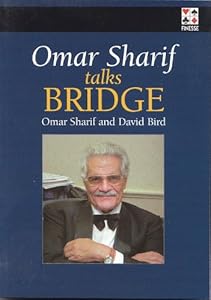"Trig is not merely about Sine and Cosine" I typically tell them. "It is about developing your logical thinking. It is about sequential reasoning, building up your argument in order to reach the conclusion. That is the same skill we need in oral arguments. In writing papers."
But, of course, I don't think even one student has paid attention to that. I never learn from these interactions; I am confident that the next time a student disses trig, I will say the same things all over again, and the student will roll his/her eyes way up!
Maybe people talk illogically, and have beliefs that are no logical at all, because they didn't take trig seriously. Maybe the math teachers don't convey enough the idea to students that trig helps build important life skills.
I bet these students will also roll their eyes if I were to tell them that playing bridge will also help develop the thinking skills.
From the moment I landed in this country, I continue to be shocked at the prevailing misconception that bridge is played by single old ladies who are waiting for the Grim Reaper's knocks on their doors. I have no idea why such an American interpretation exists.
I learnt trig in school, and my parents taught us to play bridge and chess. Well, it was later in life that I realized that father had twisted the rules of the game a bit and I had to unlearn those bad habits. But, the unlearning was not difficult.
Unlike with poker, where a player needs to have a poker-face in order to bluff well, there is no need to bluff in bridge. In fact, bluffing can lead to losses and that is a sure way to end up with no partner at all!
The bidding in bridge and the execution of the contract require, once again, logical thinking. If a player bids X, and another bids Y, it will soon become obvious whether or not they add up well. The game is also a wonderful way to learn to construct a composite story based only on the smallest pieces of data that we can get.
Logical thinking, working with the data while making sure that the data is accurate, and leading to a conclusion is also what critical thinking is about. There is no leap of faith in critical thinking. No bluffing. No arguments that cannot be supported with evidence.
Schools are not ready to adopt bridge:
Bridge is a challenging game even for adults, requiring strategy and the memorization of complex rules. Yet evidence of its academic benefits is still largely anecdotal. A 2005 study by Christopher C. Shaw, a retired business professor and bridge player, found that a group of bridge-playing fifth-grade students in Carlinville, Ill., made larger gains on standardized tests than their classmates, but academic scholars have called these findings limited and preliminary. Mr. Shaw is conducting a similar bridge study with students in Mount Pleasant, Iowa.Hey, even the richest bridge nuts--Bill Gates and Warren Buffett--couldn't get enough people and schools excited about this, despite them offering their own money to fund bridge in schools. Students and teachers do see the benefits:
“My intuition says bridge is a really good tool to develop critical thinking and inferential reasoning, plus it gives them a lifetime recreational skill,” Dr. Shaw said.
“It kind of teaches us math, but I like it better than math,” said Jack Schwerner, 10, who ranked bridge ahead of video games, but behind football.No trig. No bridge. What is this world coming to!!!
Patricia McIlvenny, the principal, said the lessons in teamwork and cooperation learned around the bridge table were as important as the academic ones. “You can’t text your partner your strategy,” she said.
“You actually have to put down your cellphone and interact around a table. It’s reintroducing a lot of social skills that have been lost.”

4 comments:
You should teach bridge in your Economic Geography classes!
Well, for an explanation like that of the benefits of trignometry, you deserve students to glaze and roll their eyes :):)
Bridge is of course a great game for the mind, but its a pity it hasn't caught on as major sport. Its never televised, gets hardly any coverage . Real pity.
hey, do you play bridge? we can them team up and play online at my favorite FREE site: bridgebase.com
oooooh .... what a tempting thought--to teach bridge in econ.geog. ... am tenured for life, so, i can do whatever i want to do, right? ;)
Post a Comment